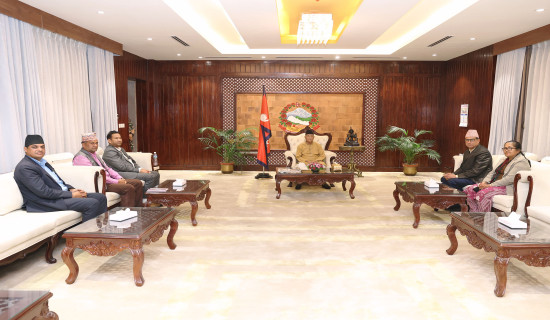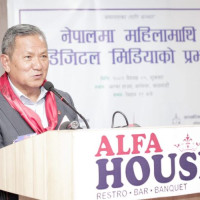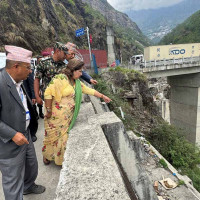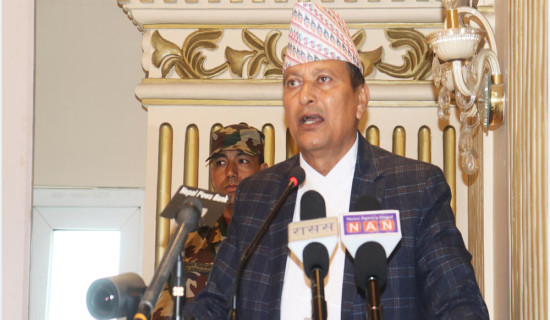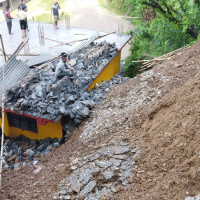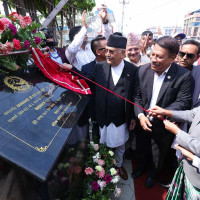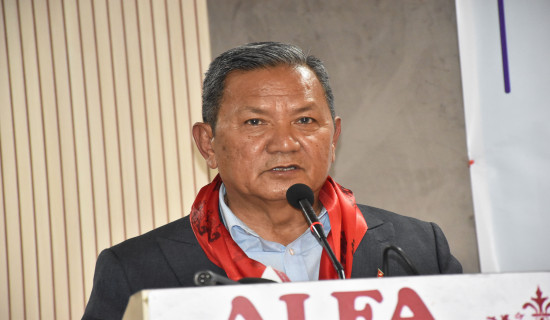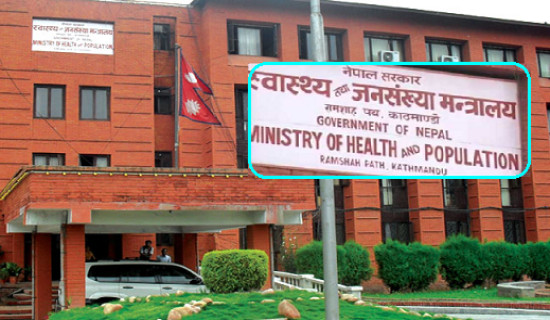- Saturday, 19 April 2025
Nepal will be net exporter of power by 2025: PM
By A Staff Reporter,Kathmandu, Apr. 19: Prime Minister Pushpa Kamal Dahal ‘Prachanda’ has said that the country would be a net exporter of electricity by 2025.
“Due to accelerated pace of development of hydropower projects both from private sector and state utilities, we anticipate to be a net exporter of electricity by 2025 without any need to import even in the dry season,” Prime Minister Prachanda said while addressing the Power Summit 2023 that kicked off here Tuesday.
Stating that the government of Nepal recognises the energy sector as the one that can develop a strong base for prosperity, he said that green energy would be both a means and also a product that would enable Nepal to make the transition to a strong economy.
He said that the government of Nepal took great pride in announcing to the world that Nepal today generated more power than the countrymen consumed, though seasonally.
“We realise that many Nepalis still do not have access to green energy and we must continue to expand the grid as well as adopt off-grid technologies to make electricity available to all people of the country, " he said.
According to him, the use of generated electricity in our own domestic market is our key priority as
the country aspires to be economically prosperous.
"We also know that many industrial demands are ready to be created if we can expand transmission and distribution lines and ensure a reliable power supply," PM Prachanda said, adding, "We all should understand that the use of generated electricity in our own domestic market is our key priority as we aspire to be economically prosperous."
He said that it was of equal importance, for economic reasons, to engage ourselves in the cross- border power trade in view of utilising cheap and diverse resources existing in the region and sub-regions.
Stating that while export of surplus energy from Nepal required to be on the table, he highlighted four sectors, including agriculture, industries, cooking and transportation that can consume electricity heavily and increase the per capita consumption.
According to him, this would also mitigate Nepal's dependency on imported fossil fuels and huge trade deficit.
Prime Minister Prachanda said that while over 65 per cent of Nepalese were engaged in agriculture, it contributed less than a quarter of our GDP and had a huge potential for growth.
Reiterating that the government of Nepal would work to ensure that industries across Nepal had access to green energy at competitive rates, the Prime Minister said, "If we can get all Nepalis to cook with green energy, it would contribute to protecting our forests, and also greatly reduce our dependence on imported LPG."
The Prime Minister requested IPPAN to join hands with the government and work together to come up with a clear demand development policy that can help broaden the market for Nepal’s green energy.
"Following the historical political changes that have taken place in Nepal, the aspirations to see large scale economic development has also risen among the people of Nepal," he said, adding, "Nepal has been at the forefront in its efforts to conserve our rich biodiversity heritage and is a signatory to all treaties related to the global response to climate change."
Stating that Nepal has a very clear opportunity to attain the goal of becoming net zero by 2045, PM Dahal said, "Given that we are endowed with enormous hydro and solar power potential, we can not only fulfill our international commitment of transition to clean energy but also can support our neighbouring countries to meet their emission reduction targets by exporting our electricity."
On the occasion, Minister for Energy, Water Resources and Irrigation Shakti Bahadur Basnet said that the government and the private sector were working together for the qualitative development and change of this sector.
He said that the government was moving forward with a long-term plan in the search for international market of electricity and increase in domestic consumption.
Managing Director of Nepal Electricity Authority Kul Man Ghising has said that electricity consumption had increased by 15 per cent per year in Nepal for the past couple of years.
He said that there were still problems including land acquisition to build a transmission line in Nepal.
Ghising said that no matter what the problem is now, it will resolve in the future.
The two-day Power Summit has started today with the theme of 'Broadening Green Energy Markets’ hosted by Independent Power Procedures’ Association.
More than 300 domestic and foreign representatives from more than two dozen countries, including India, Bangladesh, Bhutan and Sri Lanka are participating in the conference.
In the summit, Nepal's electricity market, transmission infrastructure, hydropower demand, technology, innovation, international electricity trade will be discussed in 15 different sessions.



